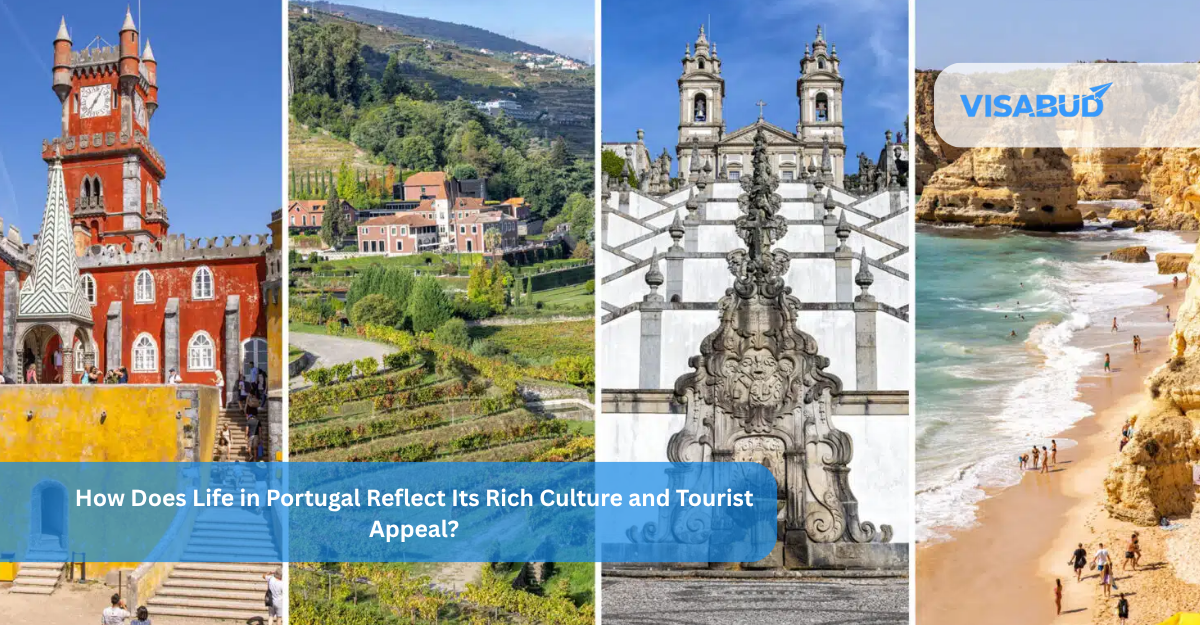Poland Travel Guide: All you need to know to visit Poland in 2025
Welcome to Poland
Welcome to Poland
When most people make travel plans, Poland is rarely at the top of their lists of must-see locations. However, we strongly advise traveling to this member of the European Union since it has so much to offer, including historical monuments, natural beauty, thriving nightlife, and affordable accommodations. In this comprehensive guide to traveling to Poland, you’ll learn why you should go there at least once in your lifetime, the ideal time to go, the visa requirements, and more.
Document checklist for Poland
- Visa (if applicable)
- Passenger locator form
- Sufficient funds
- Valid passport
- Return airline ticket
Essential Poland travel information
Currency – The Polish currency is the Zloty (zł). $1 is equivalent to approximately zł4.8.
Daily budget for 1 person – Allow a daily budget of zł210 ($43).
Languages – The country’s official language is Polish.
Socket type – 230V supply voltage and 50Hz for types C and E.
Time zones – Central European Time (CET): (ET +6).
Top 3 cities to visit – Warsaw, Gdańsk and Kraków.
Top 3 landmarks/monuments: The Wieliczka Salt Mine, Old Town Warsaw, and the Auschwitz-Birkenau Memorial and Museum
Visa information for Poland
Most foreign people are permitted a 180-day visa-free travel to Poland for a maximum of 90 days for business or touristic purposes.
Typical costs and budget for Poland
Daily spending per person: z210 ($43).
Food: z52 ($11)
Transportation: z19 per day ($3.90).
Hotel: Z238 ($48) for a two-person hotel room.
An average trip for two for one week will cost z2944 ($605).
Poland’s finest modes of transportation and transportation
Whenever feasible, use the train because it’s affordable, accessible, and frequently on time. For travel between large cities like Warsaw, Gdansk, Poznan, and others, InterCity trains are advised.
Although less pleasant than trains, buses may also be used to travel across Poland. Additionally, buses make travel to the Lake District, the mountains, or local connections to small towns more convenient. There are also reasonably priced long-distance buses that travel to other European cities.
If you want to discover Poland off the main route, driving might be a terrific way to do so. However, the likelihood of accidents increases due to poor road conditions and risky driving habits. So remember to obtain an international driving license.
Safety in Poland
Compared to many other nations, Poland is generally a safe place for visitors to travel. However, racial crimes occasionally happen despite the rarity of violent crimes against immigrants. Always keep valuables hidden, particularly in popular and crowded areas like railway and bus terminals. Pickpocketing and other little crimes are a threat everywhere.
Unregulated taxi businesses occasionally operate in airports and railway terminals and frequently overpay. Use only authorized taxis.
Russia and Ukraine are still at war with one another. Due to the Russian invasion, several military operations were conducted close to the Polish border in Ukraine. Due to safety concerns, do not attempt to enter Ukraine from Poland.
Weather in Poland
Despite having great history and beautiful natural surroundings, Poland is not a tropical destination. Poland experiences two different seasons: hot, rainy summers and chilly, bleak winters. The best times to travel to Poland are in the spring and fall, in mild weather and with fewer visitors.
Winter in Zakopane, however, is the perfect season for skiing from October to March, and December features some of the most romantic Christmas markets and celebrations.
Popular Cities and Towns in Poland
Warsaw’s ancient center has been painstakingly reconstructed, although the Second World War nearly devastated the entire city. The city’s past also contributes to its urban mix of buildings and locations, rich with artwork, restaurants, and pubs in plenty.
Gdask – The city’s stormy past helped to shape its distinctive personality. Numerous beer gardens provide a tranquil setting, and boats leave the harbor for cruises around the canals. It’s simple to go to the Baltic coast from here.
Wrocaw – The fourth-largest city in Poland, Wrocaw, boasts a thriving arts and cultural scene, with several festivals and annual events. In addition, Wrocaw is a city with thriving nightlife, a sizable student population, and everything else you might want.
Must do and see in Poland
- Visit the Biaowiea Forest, one of Europe’s oldest woods, which UNESCO designates.
- The Auschwitz-Birkenau Memorial and Museum offers information about World War II.
- Unwind at the Warsaw beach beside the Vistula River.
- The Wieliczka Salt Mine dates to the Middle Ages and allows visitors to journey to the planet’s heart.
Typical Polish food to try
Pierogi – These Polish dumplings are composed of thin dough and are stuffed with potatoes, pork, sauerkraut, fruit, mushrooms, cottage cheese, or onions that have been fried. Pierogi is a classic Polish delicacy, and Christmas wouldn’t be Christmas without it.
Bigos – Shredded sauerkraut, fresh cabbage, sausages, dried mushrooms, spices, prunes, and onions are all ingredients in the traditional Polish stew known as bigos.
Gobki – Gobki is a Korean dish of boiled cabbage rolls stuffed with rice and seasoned pork and baked in a thin tomato sauce. Many recipes also call for mushrooms and other kinds of stuffing.
Vaccine information for Poland
Only the Hepatitis B vaccine is strongly advised for people who are at high risk. Certificates of yellow fever immunization are not necessary for travel to Poland. Please read more on the CDC website if you want the most recent advice on which vaccinations to acquire before visiting Poland.
Fun facts about Poland
- The Castle of the Teutonic Orderis the world’s most potent castle.
- Poland’s environment, which includes forests, mountains, lakes, deserts, coasts, and marshes, is among the most varied in Europe.
- Polish-born Marie Curie Sklodowska was the first woman to receive the Nobel Prize.
Related Articles

5 min read
How Does Life in Portugal Reflect Its Rich Culture and Tourist Appeal?
If you're considering a trip to Portugal or even thinking about living there you're not alone. There's something about this beautiful country that captures people’s attention. Maybe it’s the sunny
Read More
5 min read
What Should You Know About Ireland’s Lifestyle, Weather, and Culture Before Visiting?
🇮🇪 Planning a Trip to Ireland? Here's What You Need to Know Ireland is more than just green hills, friendly smiles, and pints of Guinness. It’s a country full of
Read More
5 min read
What You Need to Know as a First-Time Traveler Exploring East Timor Culture and Top Tourist Spots
What makes East Timor an exciting destination for first-time travelers? If you're planning your first trip to East Timor (Timor-Leste), you're in for a one-of-a-kind adventure. Unlike heavily commercialized tourist
Read MoreA unique sort of visa called a Poland Schengen visa enables you to travel for up to 90 days across all the Schengen nations, including Poland.
No, not every Schengen visa will be issued for 90 days. Only the days shown in your trip plan and the dates of your reserved flights and accommodations are eligible for a Schengen Visa.
You can reapply for a Schengen visa if your initial application is denied.
A Poland visa must typically be processed in the Poland Embassy for 10 to 14 days. The time it takes to process a Poland visa depends on several variables and is subject to alteration at the consulate’s discretion without prior notification.
Yes. For their stay on the territory of Schengen Member States, applicants must demonstrate that they have adequate and current travel insurance to cover any costs associated with repatriation for medical reasons, urgent medical attention, emergency hospital treatment, or death.
Contacting us is the best approach to applying for a Poland visa.
